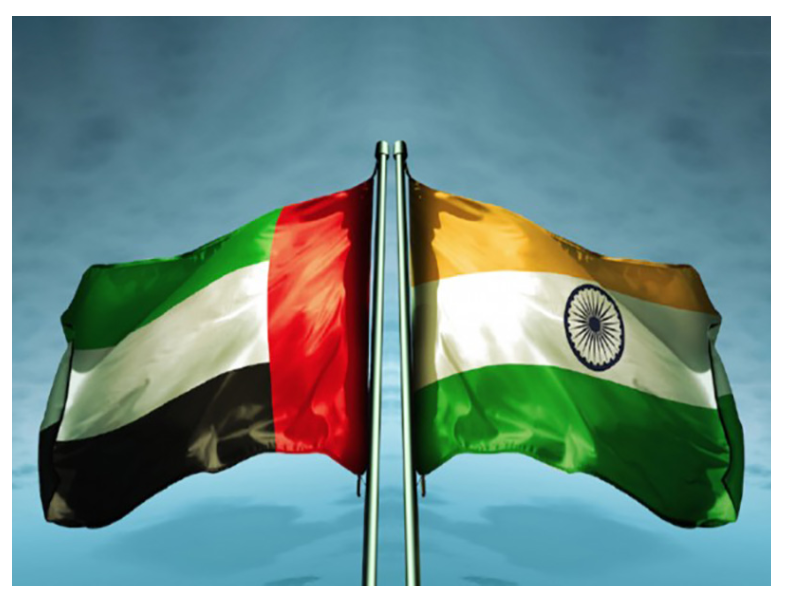
The United Arab Emirates and India have embarked on a historic new era of collaboration, cooperation and exchange. The Comprehensive Economic Partnership Agreement (CEPA) is a milestone in efforts to establish stronger relationships with like-minded nations and reflects our deep, strategic ties with one of the world’s fastest-growing markets.
For the thousands of SME that form the backbone of our economy, it also represents an exciting new era, one that will fuel startup growth by unleashing the spirit of entrepreneurship in both countries and reducing costs of goods movement between the economies.
Our nation was built on the foundations laid by entrepreneurial traders who transformed our country into a vital gateway for goods and services to flow from East to West. Today, small-to-medium-sized enterprises are fundamental to our modern, knowledge-based economy. The sector accounts for 95% percent of the companies operating here in the UAE and contributes more than 50% of the UAE’s GDP .
As a country, we are regarded as the world’s best place to start a new business, ranking first worldwide in the latest Global Entrepreneurship Index, outperforming major entrepreneurship economies such as the US, UK, Netherlands, Singapore and South Korea. Furthermore, in 2021, UAE based start-ups raised a record USD 1.2 billion in funding – doubling the number of 2020 and cementing the UAE’s position as the region’s leading country in VC funding.
With the UAE now expanding to be the Entrepreneurial Nation and re-shaping the economy to be more start-up friendly, any bilateral trade agreement our nation develops cannot be complete without an opportunity for SMEs to expand and grow.
Wide ranging deal
The UAE-India CEPA is wide-ranging in nature, covering goods and services, investment, intellectual property, digital trade, data protection. It will provide a platform for SMEs based in the UAE to expand and grow into new exciting markets, with enhanced access to new customers, networks, avenues of collaboration and mechanisms to scale at speed.
We anticipate the deal with India will generate more than $100 billion in bilateral non-oil trade within five years. Such an uplift in two-way economic activity will have far-reaching economic benefits: foreign exports will rise substantially and people in both countries will find exciting new opportunities in both traditional sectors and the industries of the future. For SMEs in India and the UAE, trade and transactions could scale new heights.
We believe that the CEPA will unlock a new era of entrepreneurship, one that builds on those born in Bangalore and Mumbai, Abu Dhabi and Dubai. From space and life sciences to agri-tech, artificial intelligence, renewable energy and e-commerce, it will open up new horizons for those with vision and tenacity. It will advocate for the private sector, cement the country’s position as a global economic hub and ensure the SME sector remains a catalyst for innovation and a champion of inclusive economic growth.
CEPA offers a wealth of new commercial opportunities for SMEs. It will promote cooperation with our Indian partners to enhance services offered by incubators, startup accelerators, export assistance centres and the infrastructural ecosystem that supports them. A network will be created to seamlessly exchange knowledge and expertise and give SMEs a greater stake in global trade.
The deal aligns with the United Nations Sustainable Development Goals, too. It aims to strengthen bilateral collaboration to promote women-owned businesses and startups. Mechanisms are also in place to encourage youth participation in the SME space through joint initiatives, activities and programs. This comprehensive framework will ensure women and young citizens have greater opportunities, boosting productive employment, reducing inequality and encouraging sustained, sustainable and inclusive economic growth.
Driving home the advantage
To enable these opportunities, there will be a dedicated SME committee led by SME support entities within both countries. The main task of the committee will be to identify opportunities to enhance SME growth across both economies and maximize trade benefits. It will also look for ways to increase information exchange on policy effectiveness and best practices on SME ecosystem development across both economies. .
The committee will meet regularly to recommend ways to boost collaboration and encourage SMEs to engage in advanced aspects of CEPA, such as digital trade and cross-border data transfer. It will also review and improve training programs, trade education, trade finance, trade missions, trade facilitation and digital trade and matchmaking services to identify new partners and investors in India and vice versa.
To improve cashflow, liquidity and financing, we are streamlining access to capital and credit. This makes it easier for companies to get the support they need to go global. Reducing or eliminating tariffs on more than 80 percent of goods will also lower the financial burden local firms face and contribute to the UAE’s position as a competitive trade and logistics hub attractive to talent, investors and entrepreneurs.
In various discussions I have had with businesses, we see ambitious growth plans but varied challenges and thus we ensured that through mechanisms in the agreement, we develop a network of SMEs that can learn from each other and share best practices in addition to developing partnerships that will unlock growth and expansion. I look forward to more success stories with SMEs as they grow and develop into larger and more sophisticated entities.
Through this deeper partnership, we are putting our full force behind SMEs. It is why our negotiating team advocated for a standalone SME chapter in our first bilateral trade agreement. As the UAE advances trade talks with Israel, Indonesia and others, we will ensure the nation’s spirit of entrepreneurship thrive for the next 50 years.


